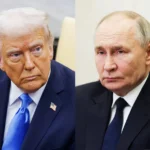
Pakistan seems to want to mix in the world of web3 technology and blockchain. Not by carefully entering the market, but by immediately setting up your own regulator: the Pakistan Digital Assets Authority (PDAA). This new body will receive a wide range of tasks and must prepare the country for a future in which digital financial infrastructure is central.
Financial innovation gets its own regulator
The PDAA not only monitors fairs, wallets and stablecoins, but is also responsible for the tokenization of state possessions and government debt. In addition, the body gets an active role in converting excess electricity to Bitcoin (BTC) via regulated mining projects. This offers Pakistan a chance to turn his energy surplus into value, while positioning itself as a player in the global cryptocurrency sector.
According to Minister of Finance Muhammad Aurangzeb, the aim is to not only find the connection with international developments, but to lead them. “With the PDAA we create a future -proof framework that protects consumers, travels foreign investors and encourages innovation,” he told the National Omroep PTV.
Advice from the top of the industry
The establishment of the PDAA stems from recommendations from the Cryptocurrency Council, launched in March. This council received advice from, among other things, former Binance CEO Changpeng Zhao and wants to help Pakistan to get a better grip on digital transactions and to take advantage of new economic opportunities.
World Liberty Financial (WLFI), a Defi project that has ties with US President Donald Trump, has now found his way to Pakistan. In April the project concluded a cooperation agreement with the Pakistan Crypto Council. This step must contribute to accelerating the crypto infrastructure in the country. This process also plays a role in this process, which has been appointed as strategic adviser to Pakistan in the field of digital innovation.
From ban to regulation
An important part of the plans is supporting startups in the development of scalable blockchain solutions. This can ensure a broader adoption of technology within various sectors, from logistics to government transactions. The development of alternative export channels via tokenization is also part of the vision.
The new course means a clear break with the earlier policy. In 2023, former State Secretary Aisha Ghaus Pasha also stated that legalization of cryptocurrencies was excluded due to concerns about money laundering and international regulations. Now the government seems to want to create space within a strictly regulated framework.
Source: https://newsbit.nl/pakistan-start-met-officiele-regulering-van-cryptocurrencies/

